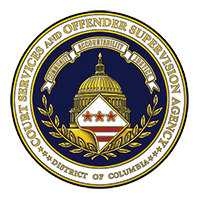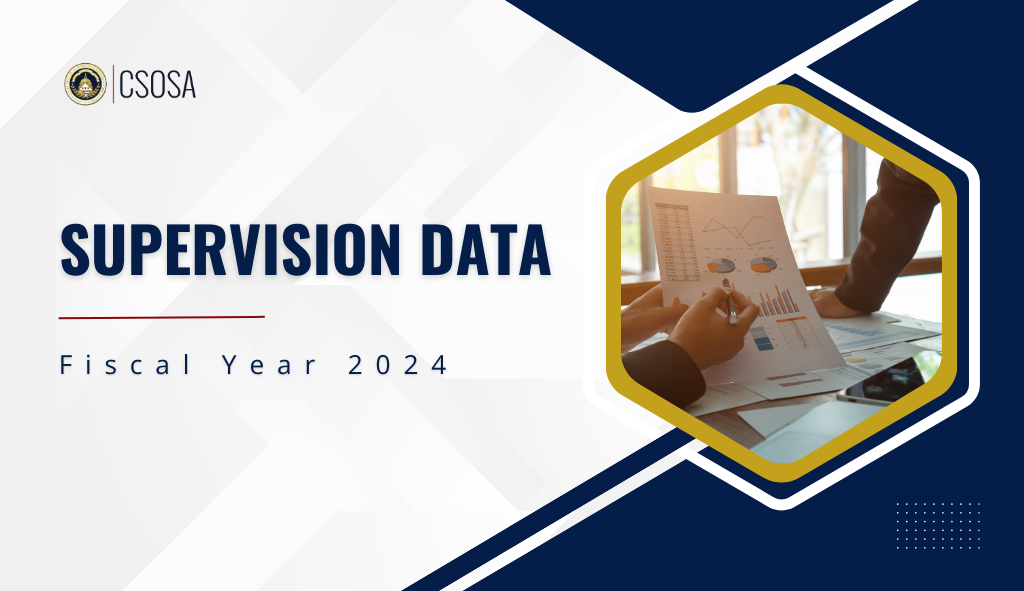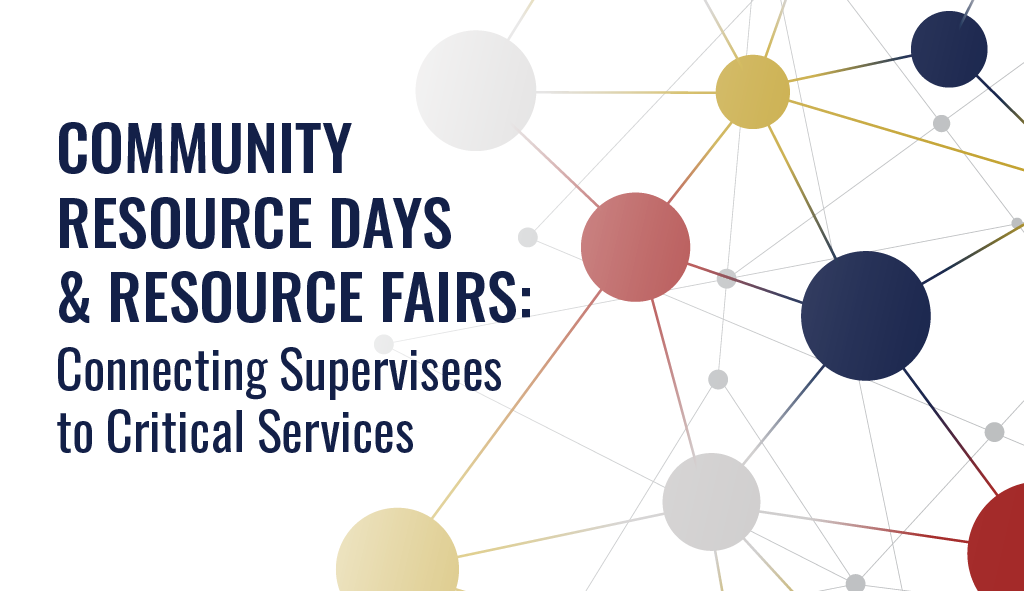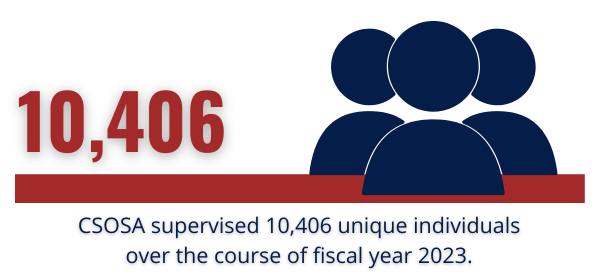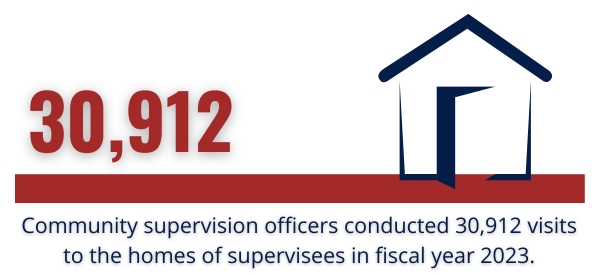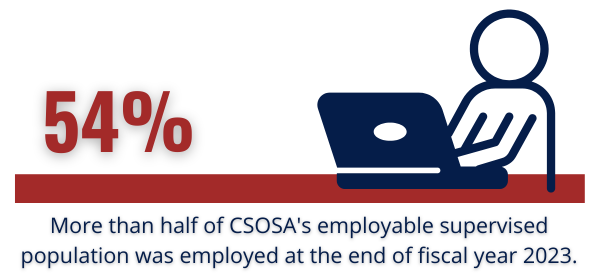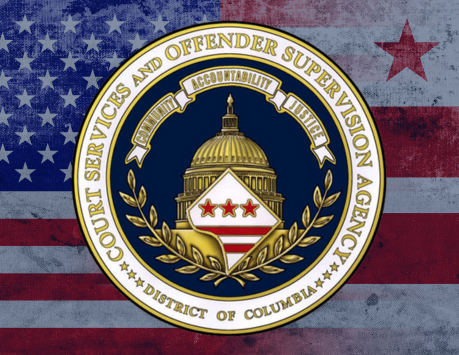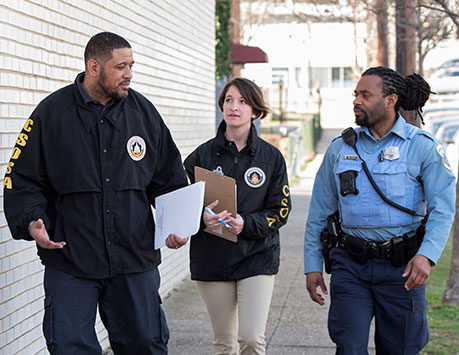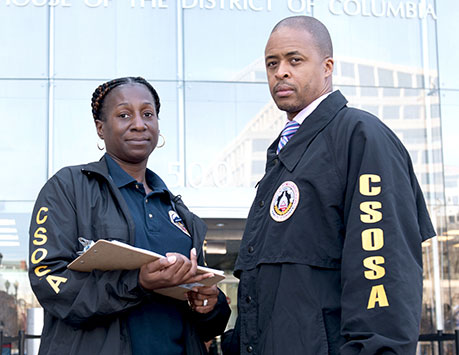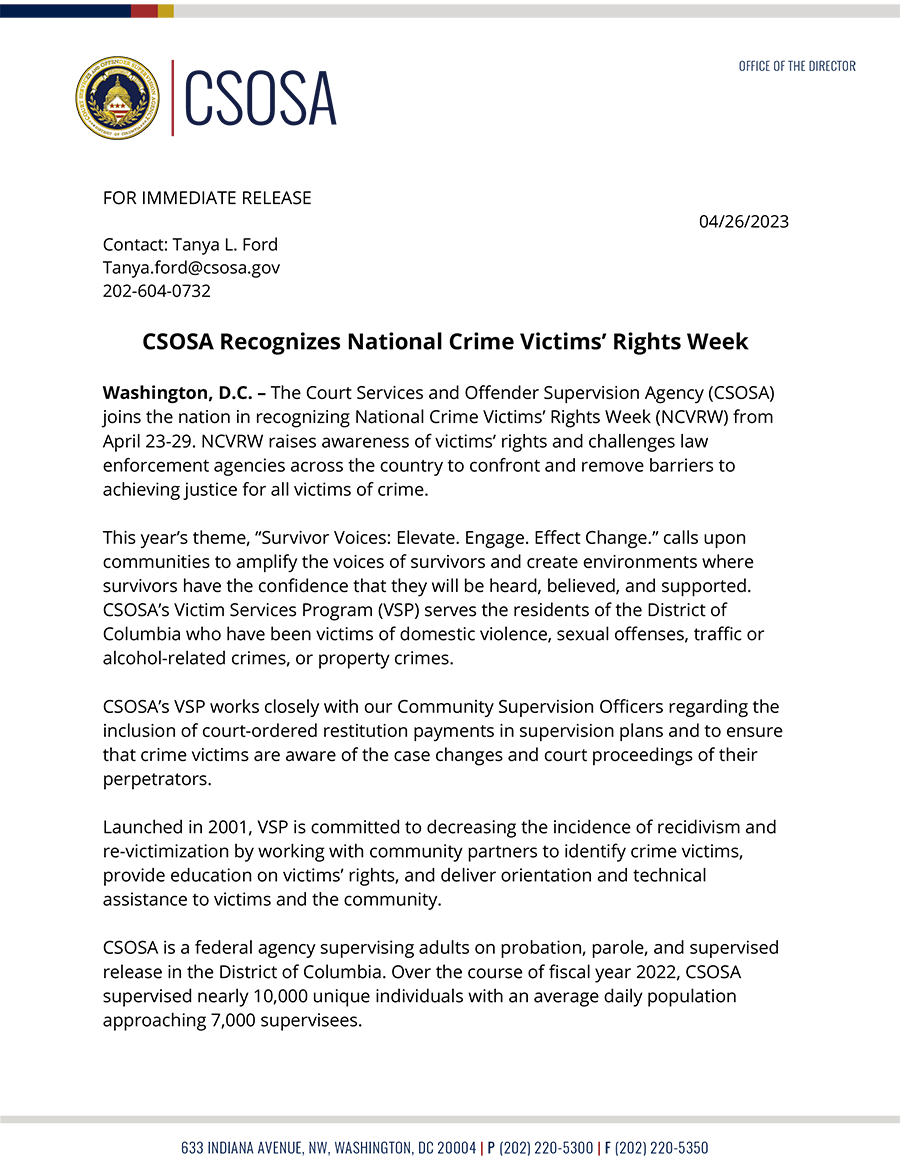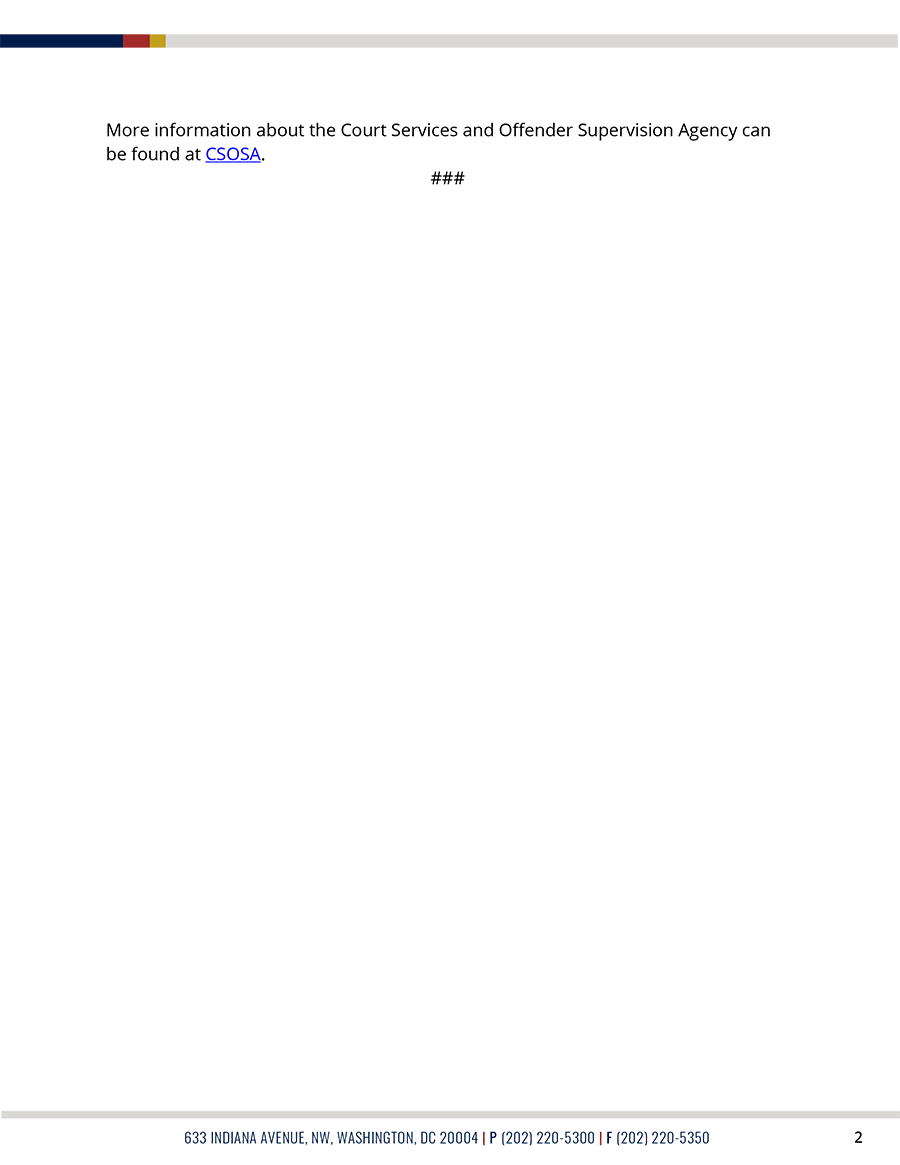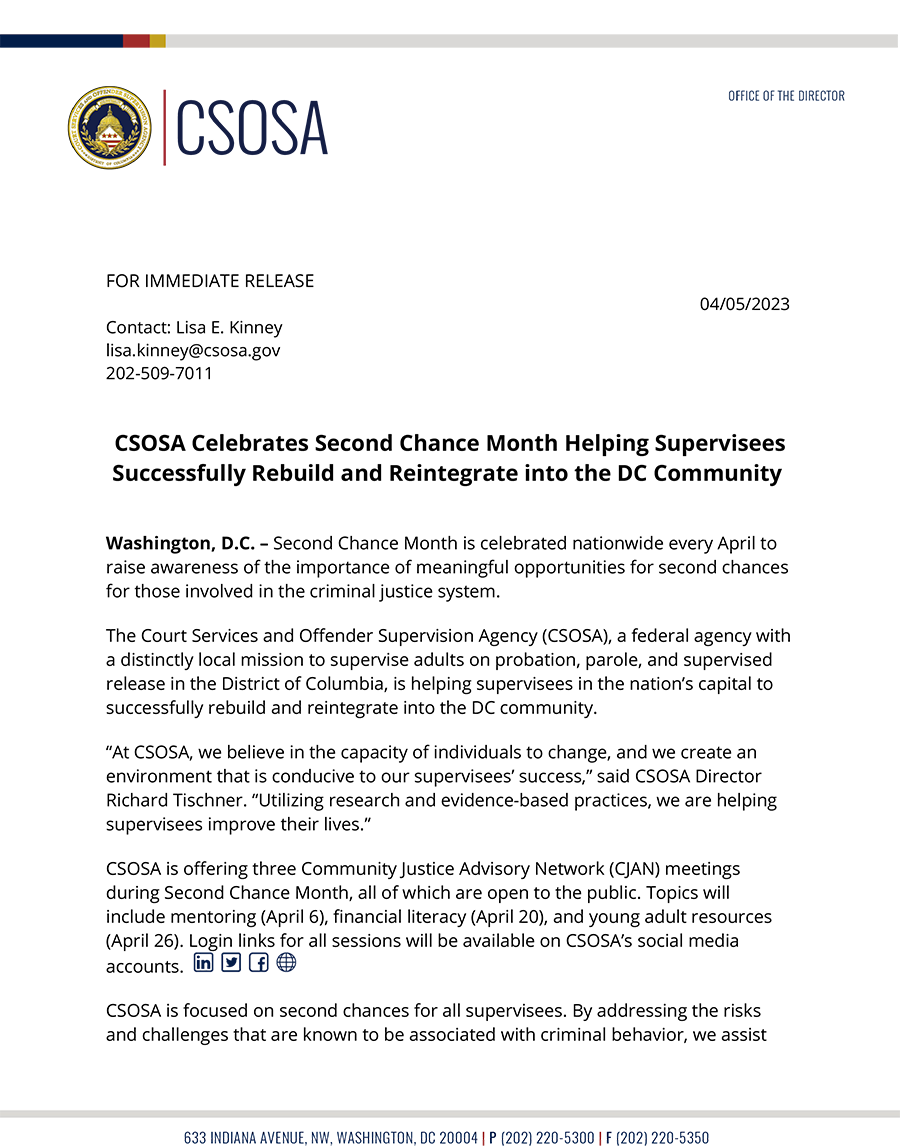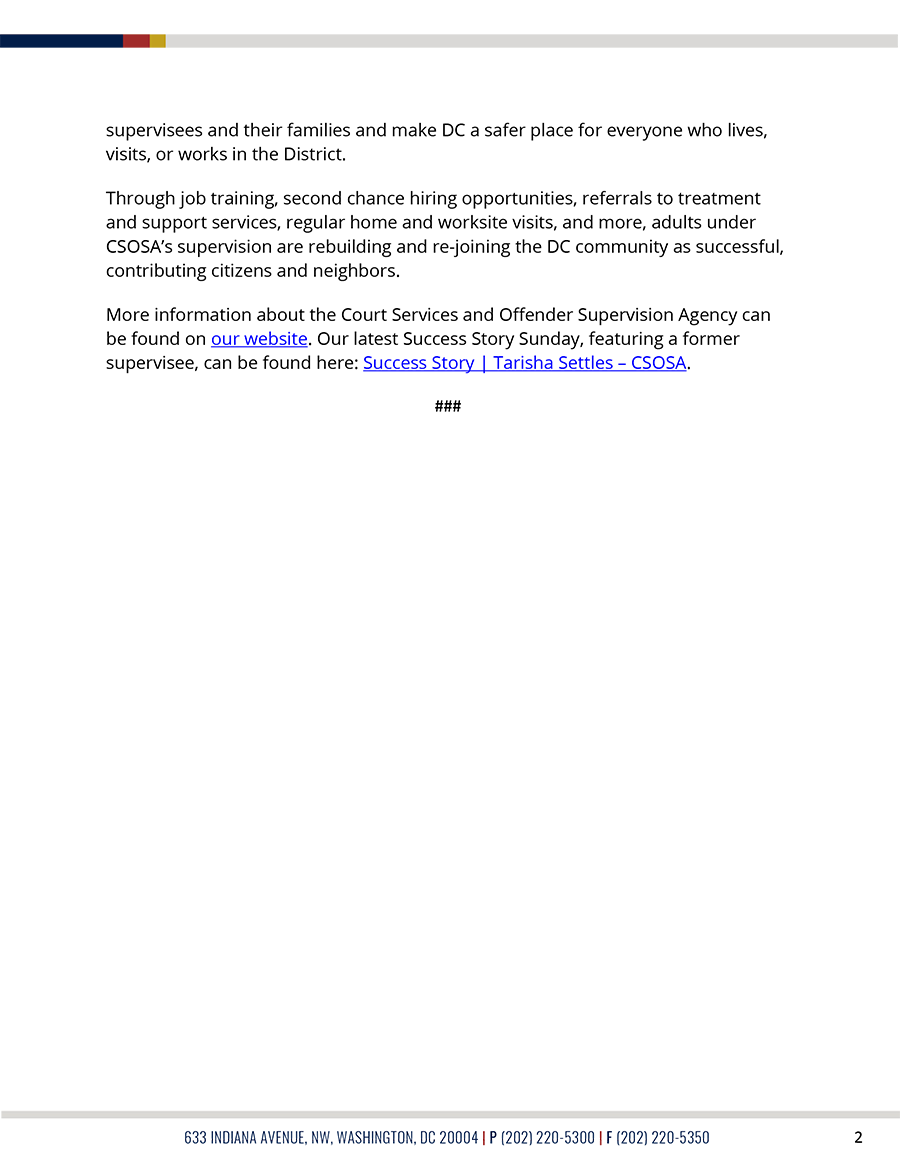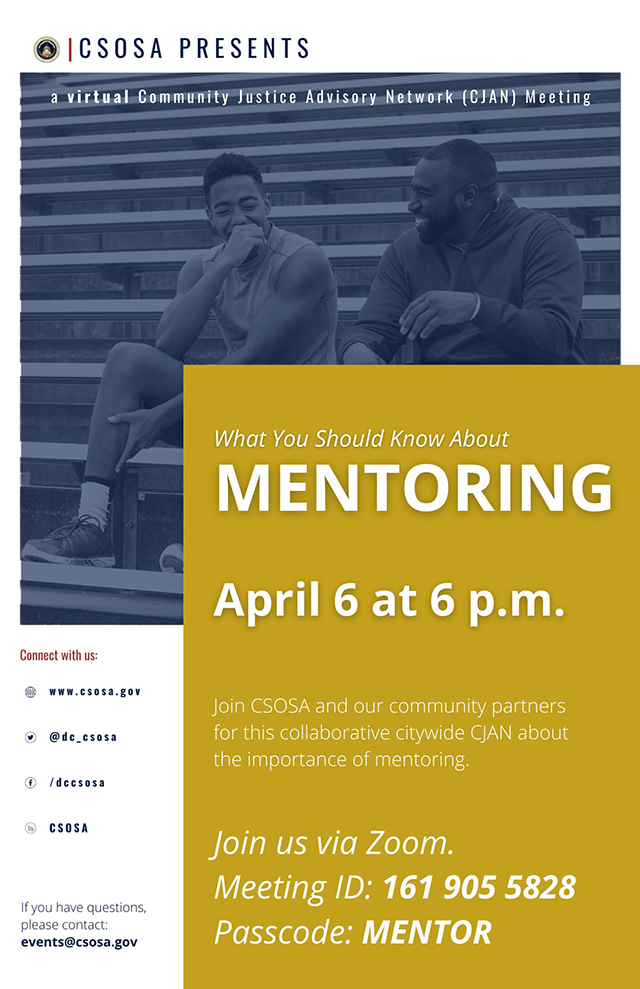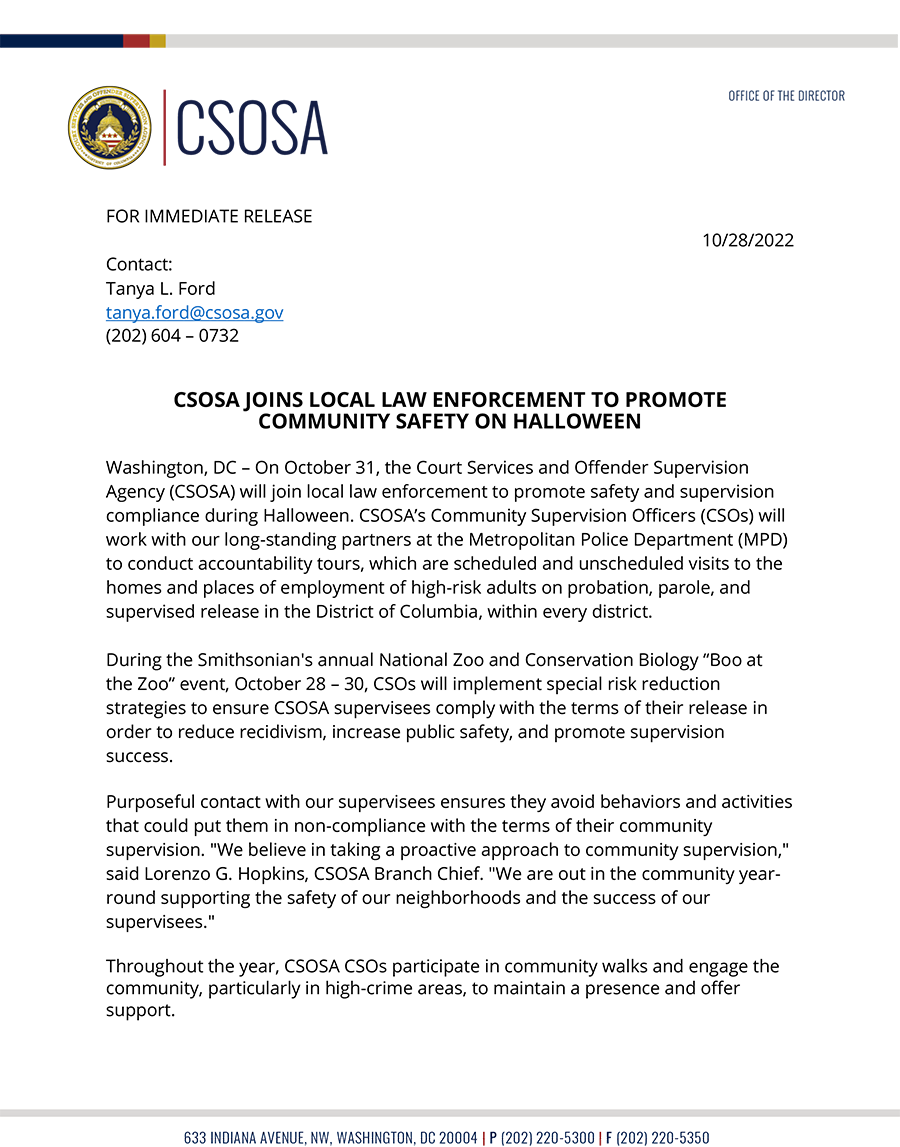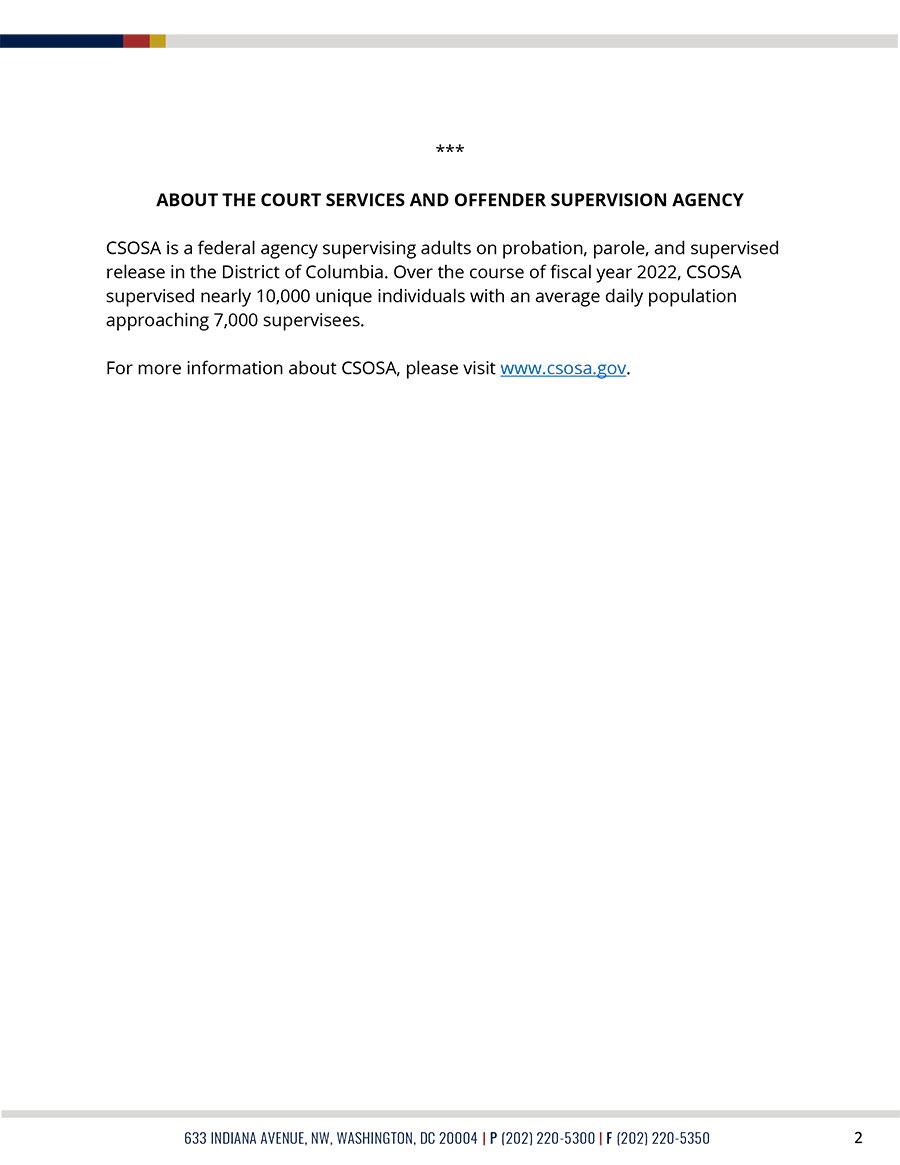“I wasn’t a bad kid, but I made some bad choices that landed me in some terrible spots,” says Antoine Johnson. Those choices led to substance abuse, criminal activity, and ultimately incarceration.
Separated from his parents, Mr. Johnson began experimenting with alcohol and illicit substances at age 12. At age 16, he was caught in a stolen vehicle. Like many who have been in the juvenile justice system, Mr. Johnson became involved in the adult justice system.
After successfully completing CSOSA supervision, Mr. Johnson joined the agency as a Credible Messenger. The Credible Messenger program grants qualified individuals who go through the job application process and are accepted, the opportunity to work for CSOSA for a six-month term. Credible Messengers positions are open to those who have completed a period of probation, parole, or supervised release.
Credible Messengers use their prior life experiences to provide support to people under supervision—assisting current supervisees in articulating their goals and navigating systems to obtain services in the community. In turn, Credible Messengers receive valuable work experience that increases their employability and marketability for future career opportunities.
Watch the video to learn more about Mr. Johnson’s story and experience.

